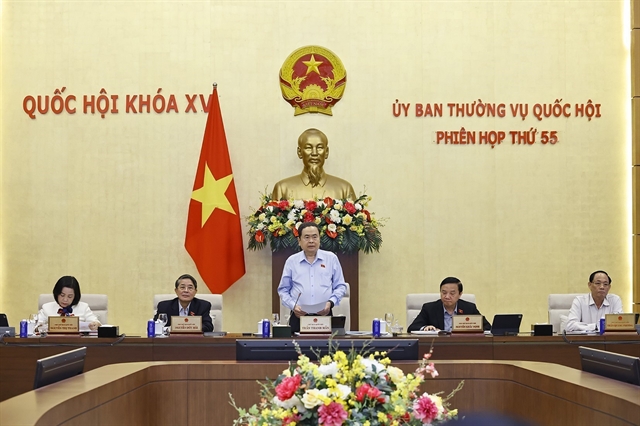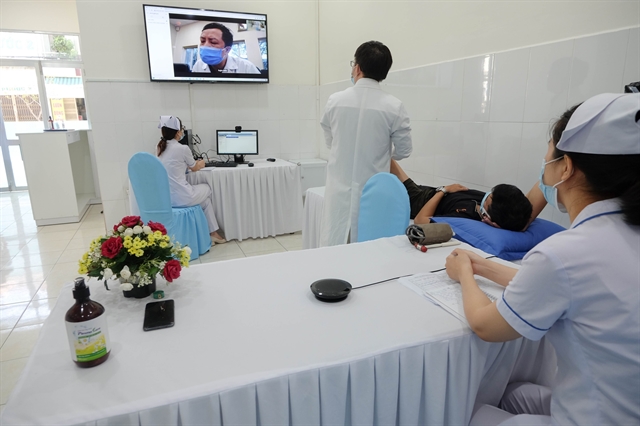 Society
Society

 |
| Doctors of Hospital 199 provide a medical check-up for a patient with the support of doctors from Hà Nội Medical University Hospital. VNA/VNS Photo |
HÀ NỘI – The Ministry of Health has recently issued a circular outlining 50 disease categories and health conditions that can be diagnosed and treated remotely.
According to Circular 30/2023/TT-BYT, the 50 diseases and health conditions cover nearly 20 medical specialties.
Among them, the endocrinology specialty is allowed to diagnose and treat obesity remotely. The otorhinolaryngology specialty is permitted for acute pharyngitis, chronic pharyngitis and tonsillitis.
The musculoskeletal specialty covers neck and shoulder pain, carpal tunnel syndrome, lower back pain, inflammatory joint diseases and spinal degeneration.
Cancer patients, after completing their treatment, can also receive remote diagnosis and mild care. Chronic diseases such as hypertension, diabetes, lipid disorders, thyroid disorders and non-dialysis chronic kidney disease are also eligible for remote diagnosis and treatment.
Additionally, some diseases in the neurology and psychiatry category, including anxiety disorders, depression, mental disorders, tension headaches, vestibular disorders, migraine, Alzheimer’s and Parkinson’s, can be diagnosed and treated remotely.
Infectious diseases such as dengue fever without warning signs, influenza, COVID-19 and HIV/AIDS are part of the list eligible for remote diagnosis and treatment.
Dermatology conditions are also covered, including viral skin diseases, allergic and immune skin diseases, bacterial skin diseases, and fungal-parasitic skin diseases. Other specialties like ophthalmology, functional rehabilitation, digestive and respiratory systems are permitted for remote diagnosis and treatment.
As of January 1, 2024, under the Health Examination and Treatment Law 2023, remote diagnosis and treatment involve medical practitioners providing healthcare services through devices and information technology without having direct contact with patients.
Practitioners conducting remote diagnosis and treatment must adhere to professional standards and comply with the list of diseases and health conditions. They are responsible for the diagnostic results, treatment process and prescription of medications.
The ministry’s Health Examination and Treatment Management Department stated that in developing this circular, the department referred to the lists of disease categories and health conditions of many developed countries worldwide.
Typically, these lists include around 20-30 diseases and do not encompass emergency cases or those requiring specific techniques, procedures or surgeries on patients, it said.
This is the initial list of 50 diseases issued in 2023. Based on the actual deployment and the needs of patients and healthcare facilities, the ministry will add new diseases to this list in the coming years.
The Ministry of Health officially launched the telemedicine project in 2020 to ensure that everyone receives medical counselling, remote diagnosis, and expert support from local to central healthcare levels. People should access quality healthcare services at grassroots healthcare establishments. – VNS




